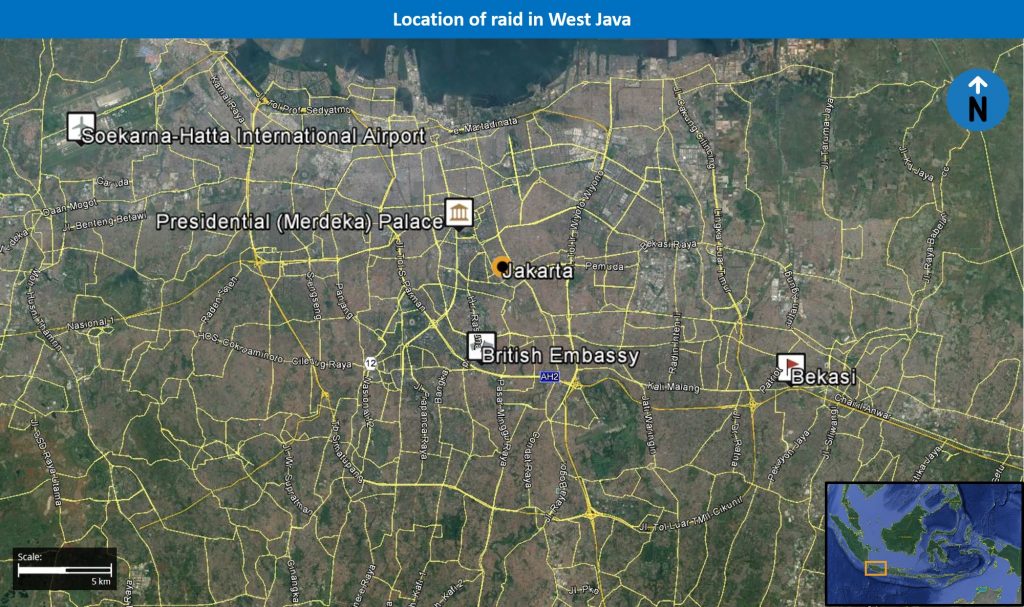Current Situation: Suicide Bomber
- On December 10, Indonesian security forces confirmed that the suicide bomber who had been arrested in Bekasi for planning to attack the Presidential Palace was female. This marks the first time that a woman had been recorded attempting to act as a suicide bomber in Indonesia. Women’s role in Indonesian militancy has previously been reported in other forms, with many female radicals playing key roles within certain groups, including in light combat.
- The wife of Indonesian militant Bahrun Naim has been known to promote the lifestyle of the Islamic State (IS) on social media and encourage young women to travel to IS-held territory. Additional reports indicate that wives of high-ranking militants began to form the backbone of the Bahrun Naim led Katibah Nusantara group, particularly in the field of recruitment. Furthermore, the Islamic State and their client groups across the world have been known to encourage women, in addition to men, to undertake weapon’s training. The Eastern Indonesian Mujahidin commanded by Santoso (aka Abu Mus’ab al Zarqawy al Indonesia) previously had female militants involved in direct confrontations with police forces.
- The phenomenon of female suicide bombers has occurred in a number of different areas. These include Israel and the Palestinian territories; the North Caucasus region, namely Chechnya and Dagestan; and Iraq.
Assessment:
- Given that women have been seldom utilized as urban combatants in South East Asia, the use of a female suicide bomber may indicate a shift in tactics from Indonesian militant groups, many of whom have traditionally been formed primarily of male fighters. In the event that Islamic State-linked groups such as Katibah Nusantara are pushing to increase their recruitment of women to carry out attacks, it may indicate their growing will to conduct out high-casualty assaults in urban areas. This is especially the case given that women are often used by militant organizations. They are given common perceptions by security forces that attacks are more likely to be perpetrated by males and therefore beliefs that security checks will be less stringent towards women.
- Furthermore, more women may become radicalized. This may lead to further increasing the threat of female led militant attacks, as fighters from the IS held territory in Iraq-Syria return to Indonesia and seek wives. This is also likely be used as a recruitment tool to grow the general existence of radical groups in the region.
Recommendations:
- Travel to Jakarta may continue at this time while maintaining heightened vigilance throughout the city given the now increased risk of militancy.
- Those operating or residing in Jakarta are advised to maintain heightened vigilance in the vicinity of government buildings, transportation hubs, iconic public areas, military bases, restaurants, high-value soft targets, shopping centers, and religious centers including mosques and churches, as they remain potential targets for militant attacks.


